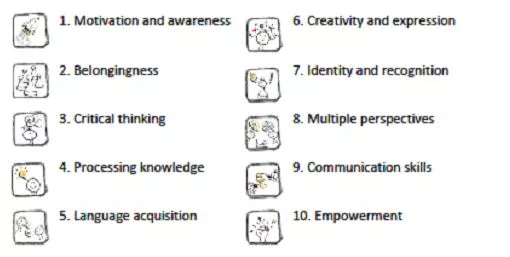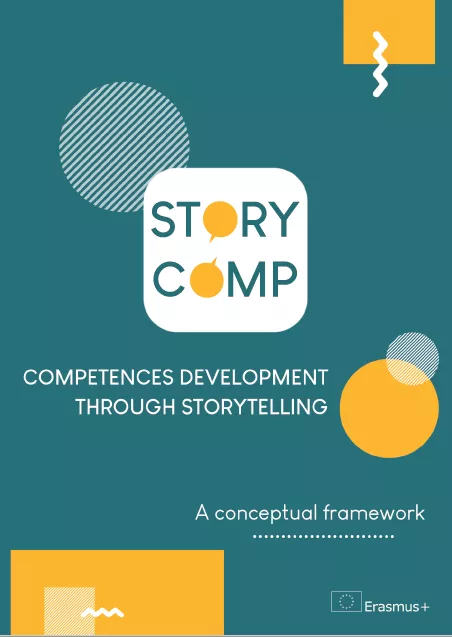Storytelling to improve adult education
The StoryComp project and its approach to storytelling as a method in adult education are rooted in a mix of educational theory and theories on storytelling. The basic idea behind the approach is that adult learning may be enriched and improved by including storytelling as a method.
Adult learning
In order to develop a framework as the backbone of the StoryComp approach, we studied characteristics of adult learning and what is it that makes adult education effective. From our studies, it became clear that adult learning benefits from a competence-oriented approach in which the learners are actively involved. Adult learners wish to build further on the experiences and expertise they have. Furthermore, they tend to be motivated by interactive learning processes, in which they get information, but also have the opportunity to have an input. Learning is more effective when the learning activities are perceived as inspiring and provide food for thought. Adult learners benefit from personalized learning in which knowledge is not presented as such, but rather as a process of constructing and personalizing knowledge, or as information on how inspiring others built their expertise and experience. They do not easily acquire knowledge as such but prefer to understand things in a context and in a perspective, give meaning to it and integrate it into their own lives.
Storytelling
Storytelling provides the listeners with experiences they can identify with. Stories give meaning to courses of events. Instead of facts and figures, stories provide meaning and inspiration to the listeners. Stories provide a narrative, a sense of direction and options of action. The audience is challenged to think about dilemmas and obstacles and how to respond to them. Stories offer a wide range of perspective and opportunities to empathize and thus to develop emphatical competences. Eventually those who listen to stories may acquire competences to tell stories of their own. Learners who are enabled to build their own stories will be empowered to become the protagonists in their own life stories and thus be empowered to take their own fate in their own hands. By sharing such stories and experiences they will enable themselves to share their needs and their experiences in the journey of their lives and their lifelong learning and development.
Storytelling in Adult learning
The StoryComp approach recognizes that storytelling provides in a vivid and captive way many of the features adult education benefits from. So, we decide to elaborate further how stories and storytelling could be used in adult education and learning. Part of the framework of the StoryComp project is about how to approach storytelling as such. It focusses on:
- how to select stories,
- how to present them,
- how to select a shape of an appropriate setting,
- how to involve the listeners,
- how to support their learning and recollection of stories
- and eventually how to acquire storytelling competences themselves.
Purposes of Stories and Storytelling
Storytelling may be included in various teaching and learning activities. It may be a part of an ice breaker when getting acquainted at the start of a course. It may be used to explain the deeper meaning of elements included in a learning activity, or it may be used as a vehicle for exchanging experiences of learners. Stories trigger the imagination; they may be entreating and thus add to the motivation and concentration of learners. Stories are more easily memorized than formal knowledge. Through storytelling competences are acquired in a context and may be more easily interiorized and linked to prior learning and experiences of learners. Stories and storytelling may be made part of adult learning activities for a variety of purposes. In the StoryComp framework, we condensed these purposes into the ten categories summarized below.


The above presented ideas are brought together in a more in-depth document in which theories of learning and theories of storytelling are linked to lifelong learning and development and the ways in which different categories of stories may be used for different purposes in different part of educational and learning processes.
https://storycomp.eu/wp-content/uploads/2022/08/STORYCOMP_Methodological-Framework.pdf


